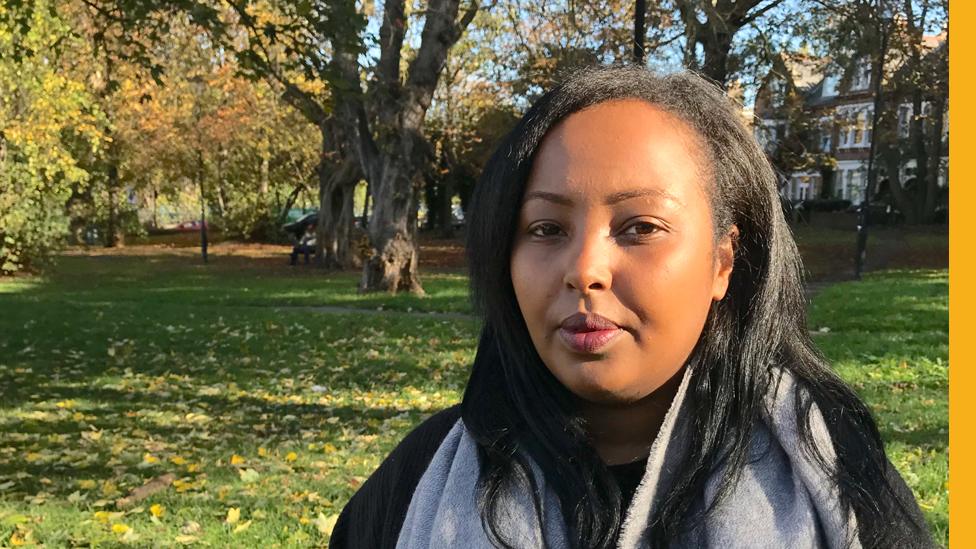Black Girl Festival: What my identity means to me
- Published
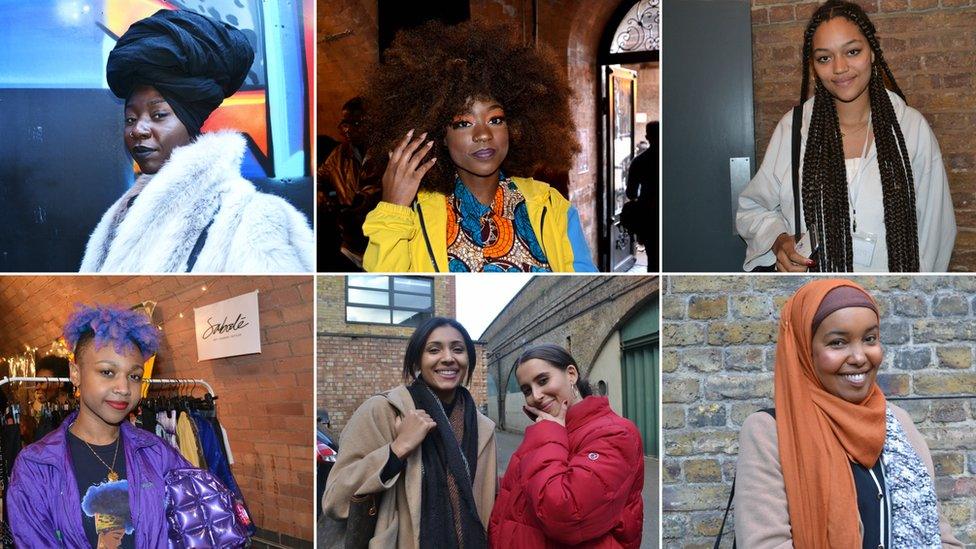
The UK's first Black Girls Festival was held in Shoreditch, east London
Hundreds of women gathered at the UK's first Black Girl Festival in London to celebrate and explore what it means to be a black woman in the UK.
Founders, Paula Akpan and Nicole Krystal, crowdfunded over £7,000 to launch the event because they felt it was something that had never been done before.
There was discussion on everything from mental health and education to motherhood and the natural hair movement, as well as a market supporting black-owned businesses.
Here, some of the festival-goers explain how it feels to be a young woman of colour living in Britain.
'I've always felt like I've had two identities'
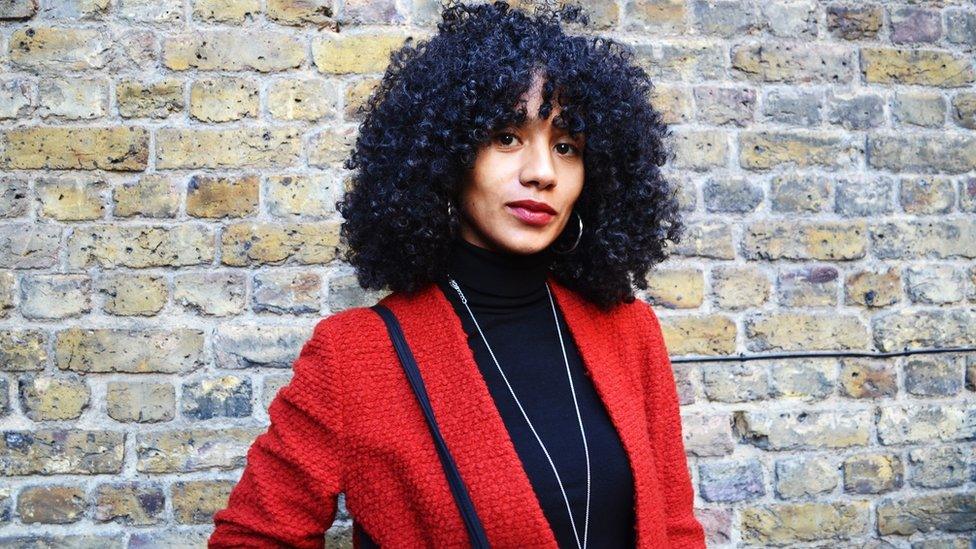
"Being mixed race I've always felt like I've had two identities. With being black British it's kind of a similar thing as well, you've got your cultural side but you can also blend in with London because it's so multi-cultural.
"These kind of events don't happen very often. It's nice to go to somewhere and see black owned businesses and contribute to them." - Chloe Smith-Mitchell
'To not see my fellow sisters as competition'
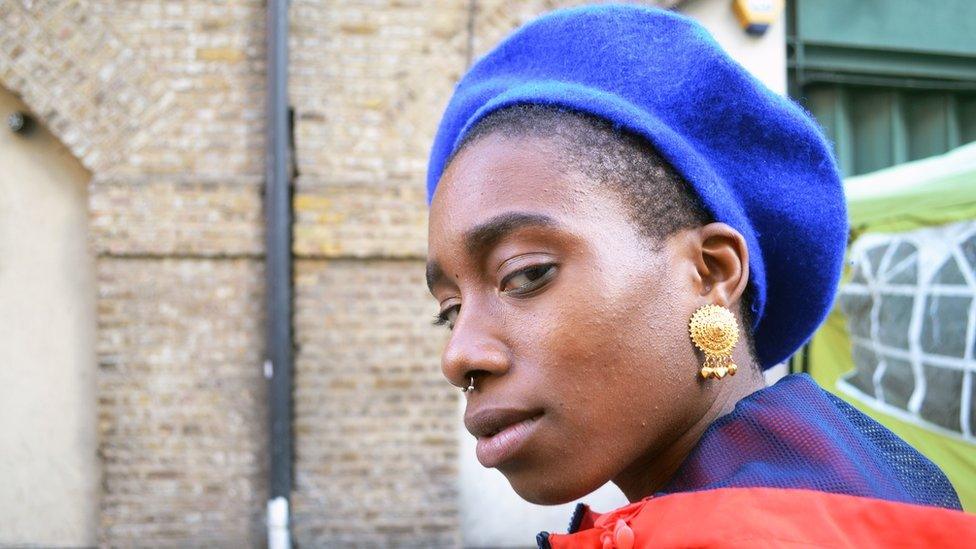
"As a young black woman having an event such as this when I was younger would have been really impactful. To see yourself celebrated by and with other women that look like you is something really important.
"It shows that womanhood comes in many different shades, many sizes and sexual orientations. It's an inclusive way to love each other.
"Being black and British to me means having to be resilient and learning how to unlearn toxic conditioning, it's being soft enough to love people wholly, whole heartedly and not see my fellow sisters as competition or a threat. It's me showing love always." - Michelle Tiwo
'This is the colour of my skin and I embrace it'
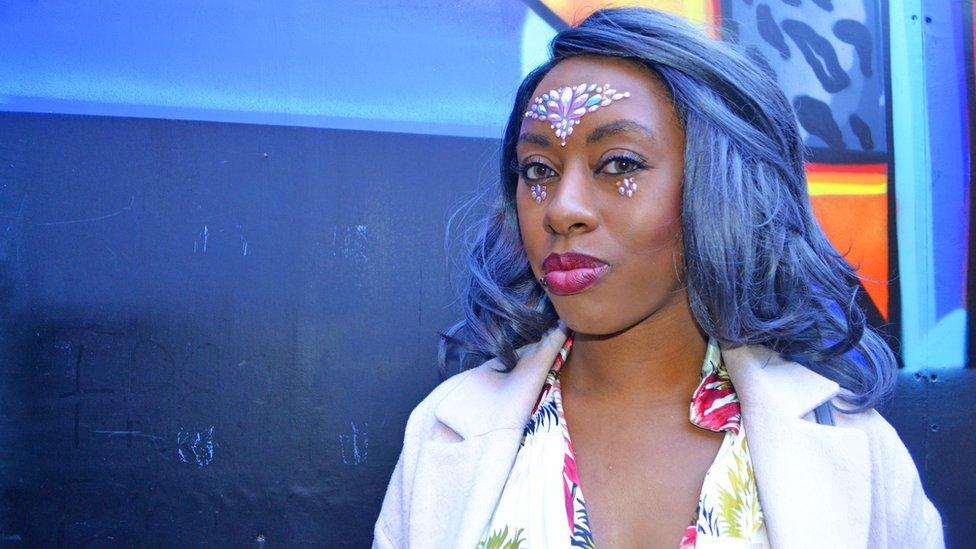
"Being a black British woman means a lot to me. I'm second generation, my mum was born here and my grandma came over in the 1950s from Jamaica. They went through a lot of segregation and racism.
"I like to represent my culture, I don't want to think I'm British so I'm not black. I'm very black and people shouldn't step on eggshells around that word. Until the day I die this is the colour of my skin and I embrace it.
"I'm very proud to be a black British woman." - Nicole Morris
'It still feels like it's not my country'
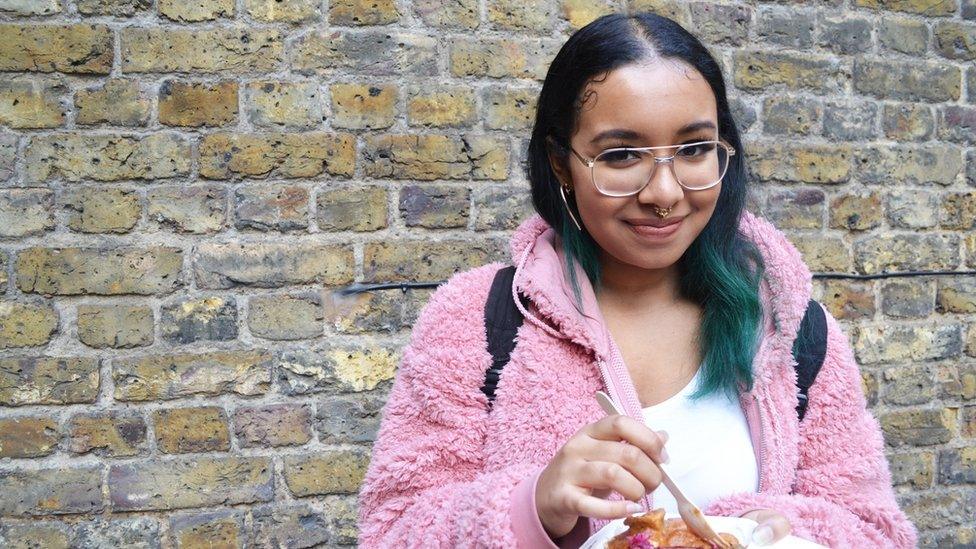
"I find it hard to see myself as a British person. I was born in this country but it still feels like it's not my country.
"Being a black British woman it's trying to make sure that my identities connect with each other and me not telling myself that being British and black are two different things. We're putting a new definition to Britishness."- Summer Scott
'It's celebrating diversity'
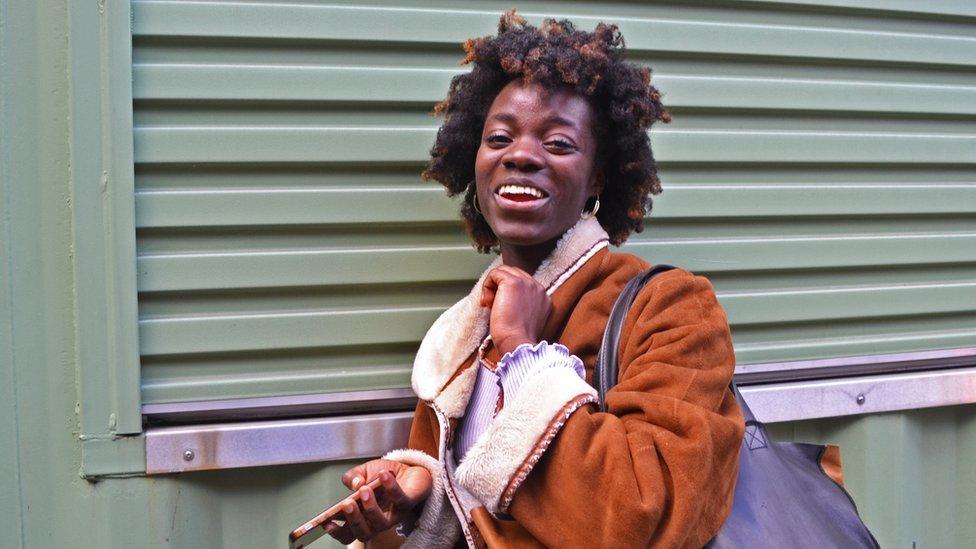
"There's a lot of creativity in black women, being British is celebrating diversity.
"I think it's very important for there to be spaces like this for black women to meet." - Korantema
'I've accepted bits of myself'
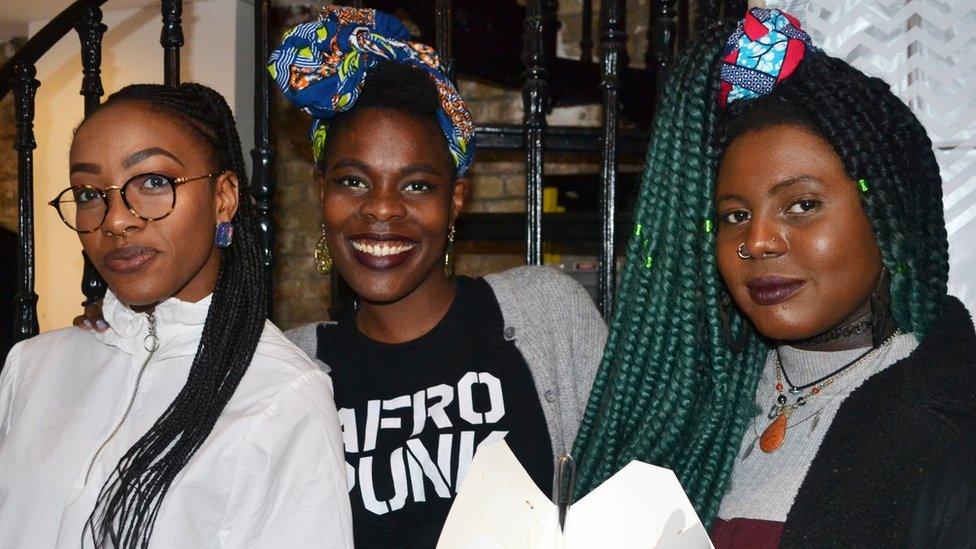
"Recently, I've accepted bits of myself, and met a lot of people who have contributed to that. Growing up there wasn't a lot of emphasis on this joy and friendship.
"It was always fed to us that we had to be fighting or be in competition with each other.
"Things like this are happening because of who we were years ago, we are now creating the spaces to say 'oh actually that's not how it is and that's not what it should be.'"- Tobi Kyeremateng (right)
'It's kind of like a gift'
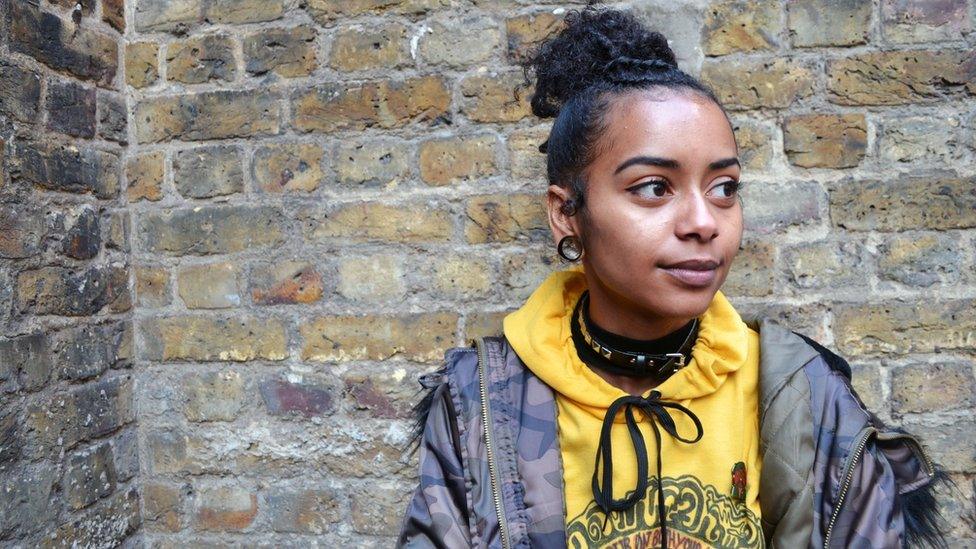
"Being a black woman to me is existing in different communities all at once. You can't really let go, it's not either or. I'm black, I'm British and I'm a woman. In a weird way it's kind of like a gift, like I'm multitasking." - Viv
'Showing you're passionate'
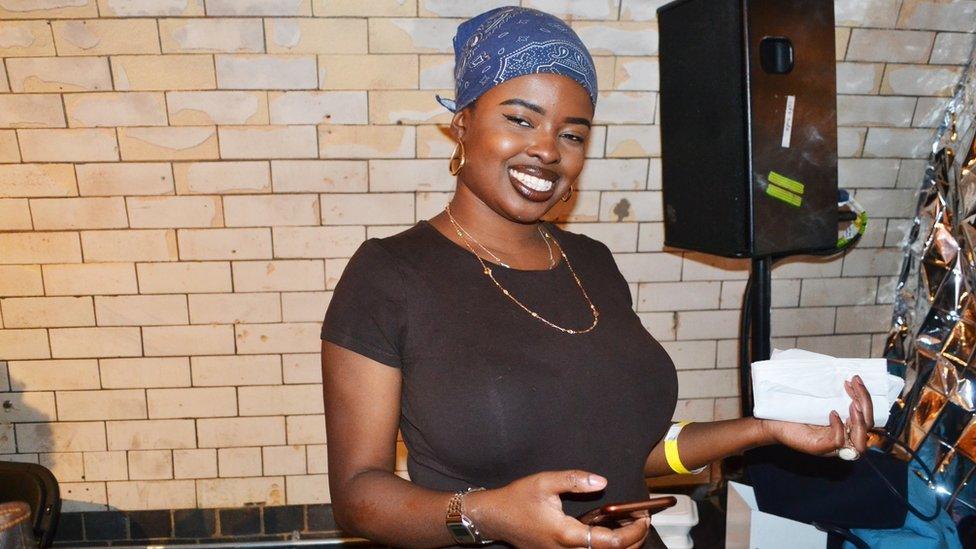
"I think just being able to explore whatever it is that you want to do and making it evident that you're passionate is what being a black British woman is about.
"I'm a self-taught makeup artist. I've been doing it for six months. I started my own makeup brand so this was a good opportunity for me to promote it."- Mata Marielle
- Published24 October 2017
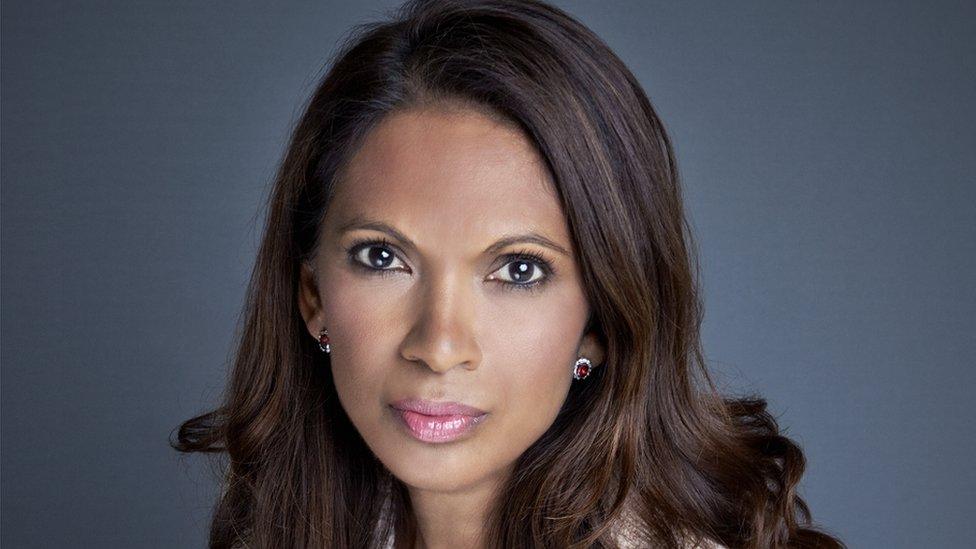
- Published31 October 2017
